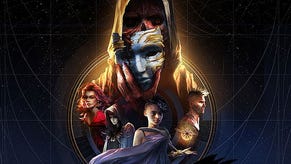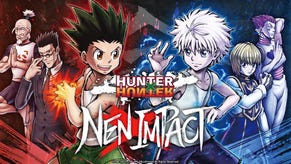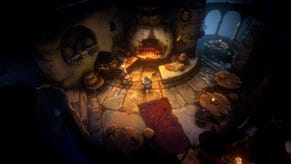Torment: Tides of Numenera morality 'tides' explained, inXile discuss plot
Torment: Tides of Numenera developer inXile Entertainment has revealed to VG247 that its sprawling RPG will feature many morality 'Tides' that will each have a profound impact on the game's plot progression. The developer has also discussed the game's plot with us in greater detail.
The spiritual successor to Planescape: Torment was announced last week, and will hit Kickstarter later today, so we got in touch with project director Kevin Saunders and creative lead Colin McComb to discuss the game in great detail.
While you can read our full Torment: Tides of Numenera interview next week, there are a few choice quotes that we couldn't wait to share with you.
First up, We asked inXile about the game's plot, and how it ties into the many worlds and dimensions within. McComb revealed that it's an extension of the ideals first laid down in Planescape: Torment, but with a grander twist focused on how you, the player influences the world.
He replied, "The main question in Planescape: Torment was 'What could change the nature of a man?' That got people really thinking, so we said 'You know, we should do something similar', in that we want people to have a game experience that will unfold and be engaging, but we wanted to approach that from a different perspective.
"Using Numenara, we can say 'What does one life matter?' You are a person who will be seeking their own answers, but you are surrounded by evidence of people who have done incredible things for the world, incredible things with the universe, and incredible things with reality.
"All of this evidence suggests that these people thought their lives really mattered. So, stacked up against people who could master time, gravity or electro-magnetism, or who could change the very shape of the world, what does your life matter?"
Choice plays a big role in helping the player assess the worth of their character's life, and the impact they have on the world. We asked the team just how it hoped to make these choices and consequences feel tangible. Their answer blew our mind.
"We don't to go for a cheap emotional hook here," McComb replied. "We want to build relationships with our NPCs and we want to build ways that we can track the choices that you make within the game.
"To do that we developed what we call the 'Tides' system, which is essentially our alignment system. It's more complex, more nuanced than just 'law versus chaos'. It's an internal thing that manifests itself through external powers."
Saunders then added by saying, "When looking at the Tides we looked at what things motivate people, what the results of their actions are, and what the concept of a legacy is. We realised that weren't really words in English that were quite right for the concepts we were imagining.
"We decided to extract the Tides into colours that would represent various facets of complex forces at work in our world. Unlike an alignment system in D&D - where you have good or evil - the Tides are not directly in competition with each other.
"In a way they're competing for your attention in that we're tracking you favour them, and that will have effects on both gameplay directly, and on how people will respond to you. We don't want to describe to the player what the answer to the question is. We don't have the answer to 'What does one life matter?'
McComb then cut in to add, "Our players are going to find this out for themselves, and we're going to guide them, challenge them and make them think, but we're not going to say, 'Here's what one life matters', because it's going to be different for everybody depending on how they play."
To help differentiate each moral Tide, inXile has colour-coded them for ease of reference. Game parameters such as choices and NPC reaction may change if you have ten points in blue, and five points in red for example. The indigo Tide may stand for justice, there could even be another for unity, or one for the end justifying the means.
"Part of the reason we colour-coded these choices is that they don't have exact analogues in the English language", McComb continued. "Something like the gold tide will be similar to empathy, charity or sacrifice, but at he same time if we called it an 'Empathy Tide', people would attach all of their pre-conceived notions about what empathy is to that."
Saunders added, "Players were learn about this two-fold, through the outcomes of their actions in the game and through myths and legends told within the game world."
Does the above get you excited? Are you looking forward to Torment: Tides of Numenera? Let us know below.
Stay tuned for our full interview next week.










.png?width=291&height=164&fit=crop&quality=80&format=jpg&auto=webp)






